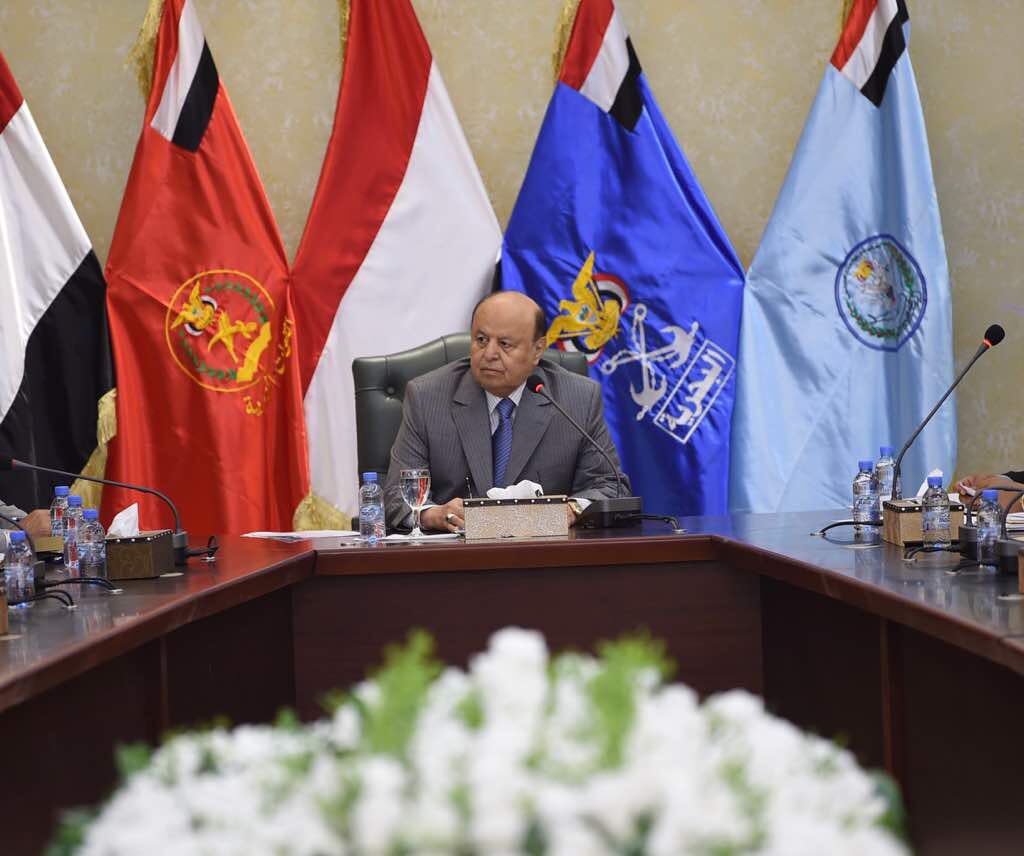The latest power transfer comes as a major step in the stalled Yemeni file and amid a two-month UN-brokered ceasefire.
Yemen’s President Abd-Rabbu Mansour Hadi has transferred his powers to a presidential leadership council on Thursday morning, whilst dismissing his deputy Ali Mohsen Al-Ahmar.
The announcement was made in a televised address and came following talks under the Riyadh-based GCC meeting aimed at reaching a political resolution to the war in Yemen.
“A presidential leadership council shall be established to complete the implementation of the tasks of the transitional period,” said Hadi, noting that the new body holds the power of both president and his deputy.
Hadi said that the council is going to be headed by Rashad Al-Alimi, with the support of Saudi Arabia, and will comprise of seven chairs. The chairs include UAE-backed Aidarous al-Zubaidi, leader of southern separatist group, the Southern Transitional Council.
Since 2015, Yemen has been a battleground between Iran-backed Houthi rebels and the Saudi-led coalition, which supports the internationally-recognised Hadi government.
The war started after the Houthis seized most of Sanaa before capturing the Red Sea port city of Al-Hudaydah, forcing Hadi to escape to Aden where he declared the militants’ takeover as a “coup”.
Hadi had been elected as president in 2012 following the ouster of former President Ali Abdullah Saleh during the Arab Spring in 2011. Hadi came to power following the signing of a GCC power transition initiative.
The latest power transfer comes as a major step in the stalled Yemeni file and amid a two-month UN-brokered ceasefire, which came into effect on Saturday. The truce, being the first since 2016, was welcomed by Qatar.
Saudi Arabia has welcomed Hadi’s decision and announced $3 billion in financial aid to Yemen, as the Kingdom’s news agency (SPA) reported. Out of the total amount, $2 billion are going to be provided by both Saudi Arabia and the UAE to support the Yemeni Central Bank.
The remaining amount is divided into $600 million from Saudi Arabia to enable the purchase of buying oil derivatives and $400 million to support development projects and initiatives.
A total of $300 million are going to fund the UN’s humanitarian response plan.
Riyadh has also urged talks with the Houthis under the UN auspices to reach “a final and comprehensive political solution”.
Last month, the GCC announced the decision to host talks between all Yemeni sides, in Saudi Arabia. The Houthis rejected the bloc’s invitation to attend the talks as they refuse to attend negotiations in a rival country.
Previous talks took place in 2016 in Kuwait where the Houthis met with the Yemeni government. The negotiations later collapsed as the rebels captured a military base north of Sanaa.
Early 2022 witnessed a flare up triggered by Houthi drone attacks on civilian sites in the UAE and Saudi Arabia, triggering more attacks in Yemen.
According to Save the Children, January was the deadliest month in Yemen since 2018, where one civilian was killed or injured every hour.
The war has turned Yemen into the world’s worst humanitarian crisis, where more than 14 million people in Yemen, 80% of the population, are in acute need of humanitarian assistance.
The war has also displaced more than three million people.
Follow Doha News on Twitter, Instagram, Facebook and Youtube







